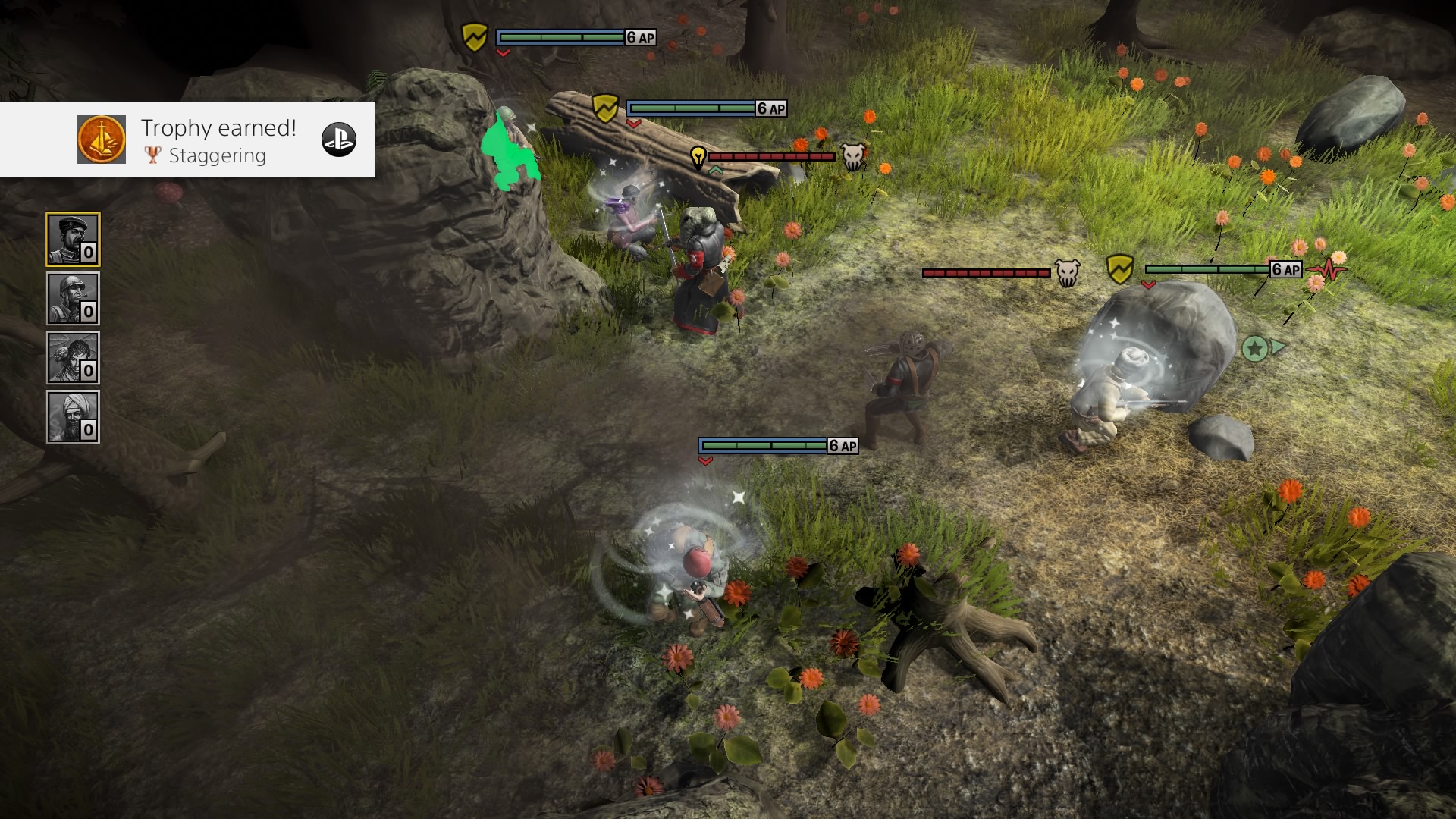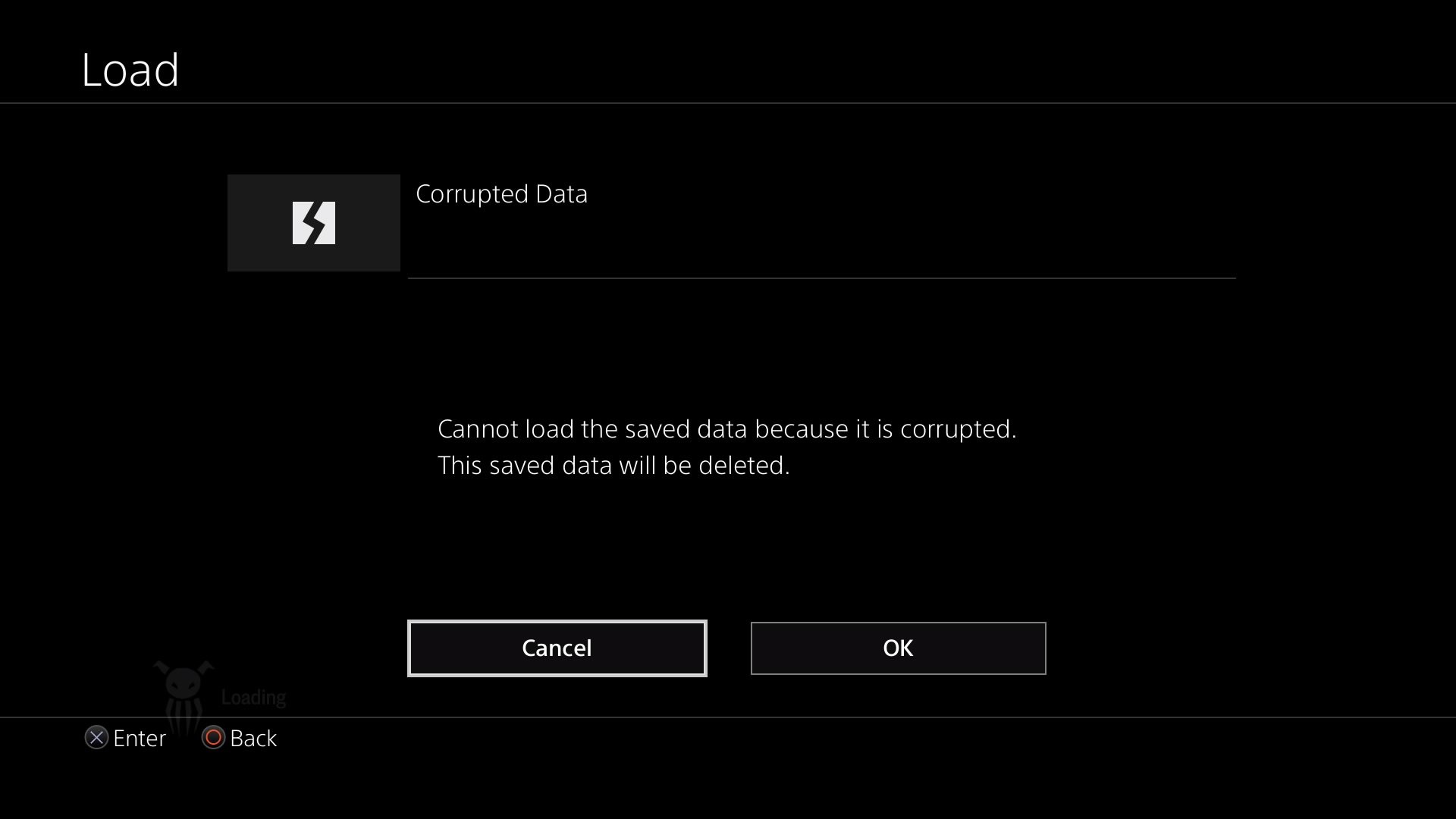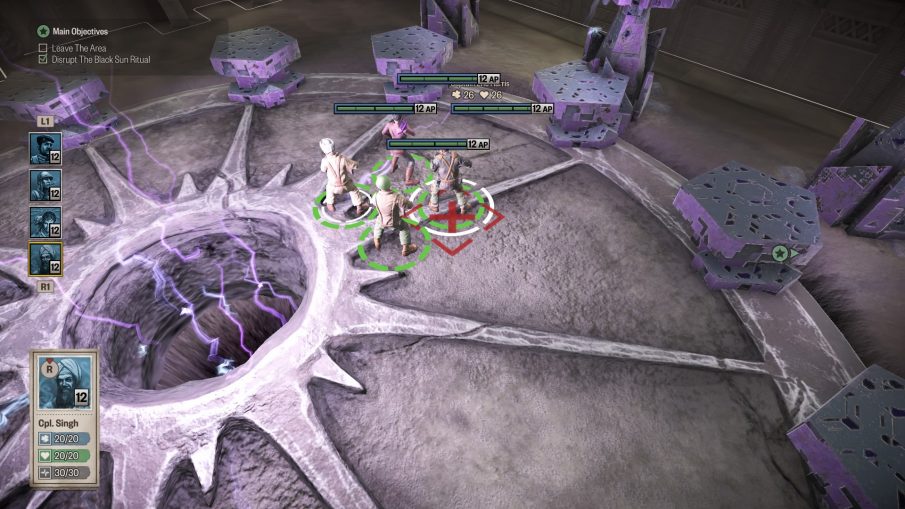PS4, Xbox, PC •
I imagine the right way to open the review of a Lovecraft-riffing game is dark foreshadowing of looming evil, so, uh–don’t look behind you. [Well done. Now clean out your desk. -ed.] Ripstone’s Achtung! Cthulhu Tactics (henceforth ACT) aims at an experience much like XCOM. Not XCOM as it would be now, because you’ve probably already played that. Instead, it has all the pieces needed to give you the experience of playing XCOM for the first time, again. That is, it’s mechanically distinct enough to play quite differently, facilitating the joy of discovery. The setting is almost perfect for this purpose–while I feel the pull of legitimate concerns about continuing to use Lovecraft’s work (starkly put by Michael Barnes here), ACT’s melding of techno-über-Nazis with Lovecraft’s Cthulhu mythos offers players mostly familiar, immediately comprehensible weapons and soldier roles to build from, with such a variety of possible ways of adding strangeness that you never know what might emerge from the shadows.
Mechanically, one of the crucial differences between ACT and XCOM is facing, making the fog of war feel almost aggressive about reclaiming territory when you turn your back. It’s a brilliant addition to the formula which should have allowed for continual sneak attacks from behind, but, alas, the design of the battlefields makes this disappointingly rare in practice. Similarly, the mythos-derived enemies aren’t numerous, so the wide-open nature of the setting has much less impact than it could. The other new global mechanical innovation is the addition of a common pool of action points, called Momentum Points, which powers a slightly different set of actions. Critically, overwatch is one of them, and MPs are limited enough that cautious players like me approach ACT very differently from XCOM. Perhaps my favorite change isn’t an addition at all, but the elimination of the base-building and resource-management stuff–you want new weapons, you pry them from the warm, dead fingers of recently deceased Nazis.

These two major mechanics are joined by a redistribution of roles and a slew of character upgrades which do at least as much to shake up the experience. My four-person squad included a slightly unusual sniper (notable for his early acquisition of the ability to auto-reload every turn), a fast scout who was deadly with a pistol, a close combat dude who was kind of a late bloomer, and a leader. I’m particularly impressed with the design of the leader’s abilities, which subtly reinforced the value of using him to direct and sometimes aid the choices of everyone else. It’s not a role I aim to have a character play in any game, but he was quite useful in that role. But shaking things up, perhaps necessarily, leads to some highly unintuitive results. For example, I very rarely used overwatch at all–the two MPs it would take to activate were almost always better used having my scout take extra shots with her secondary weapon. A large number of my turns consisted of moving her forward to put eyes on enemies, having everyone else fire, and then having her, alone, exceed all of the damage done by everyone else as I spent all of my momentum on nearly-unmissable pistol shots. Thematically, I can’t make a lick of sense of that, but experience is shared evenly amongst the squad and it’s an original pattern I don’t recall from any other game, so I’m not sure how grumpy to be about it.
Sadly, though I generally found myself eager to play, I never got as attached to these characters as I did when playing a randomly-generated XCOM squad. I remember, as a teenager, hearing for the first time that someone had painted a medal on a Space Marine™ after it had rolled staggeringly well and saved the day. I adored that idea, and still do. The idea of significance coming from experiences shared rather than a backstory written ahead of time accords better with the way my emotions work. Still, though I was a little disappointed at the lack of variety in locations (one can take similarity to XCOM too far, guys) and enemies who could have been much wilder, I would have been satisfied to recommend ACT to people looking for an XCOM-like which was a little different. Hey, speaking of dark foreshadowing:

Anybody remember Eternal Darkness on the Gamecube? Sanity was an in-game resource, and, when it got low, the game would mess with you. Sometimes it would display a fly crawling on your TV, or invert the controls. My favorite moment was when it claimed that your save had been corrupted and you’d have to start the game all over, because it caught me so completely by surprise I fell for it for a bit. I was really, really hoping that Ripstone had tossed in a brilliant homage to Eternal Darkness, because the timing couldn’t have been better–I’d just defeated a major enemy (which melded a mythos creature with a friggin’ tank), and saw this: a reviewer’s nightmare. I’ve no idea how common this is, and I’d only noticed one bug up to this point, but I have to mention it, and I know it’s a deal-breaker for most readers. Particularly when a game that aims to do something I respect has relatively few published reviews, it’s horrible to have to report that it has the Cthulhu of bugs. But, it did, and it absolutely ended my interest in playing. Fortunately, I’d already almost maxed out everybody’s skill trees, so I’m pretty sure I saw most of what the game had to offer. But that’s comfort so cold only Ithaqua would be warmed by it..
If you hear that the data corruption bug’s been fixed, Achtung! Cthulhu Tactics is a solid tactical battle game, perhaps a little less replayable than XCOM but a good deal fresher than another play of a game you likely already know like the back of your tentacle.
- Achtung! Cthulhu Tactics for PS4, $25
- Acthung! Cthulhu Tactics for Xbox, $25
- Achtung! Cthulhu Tactics for PC via Steam, $20



Start the discussion at discourse.statelyplay.com